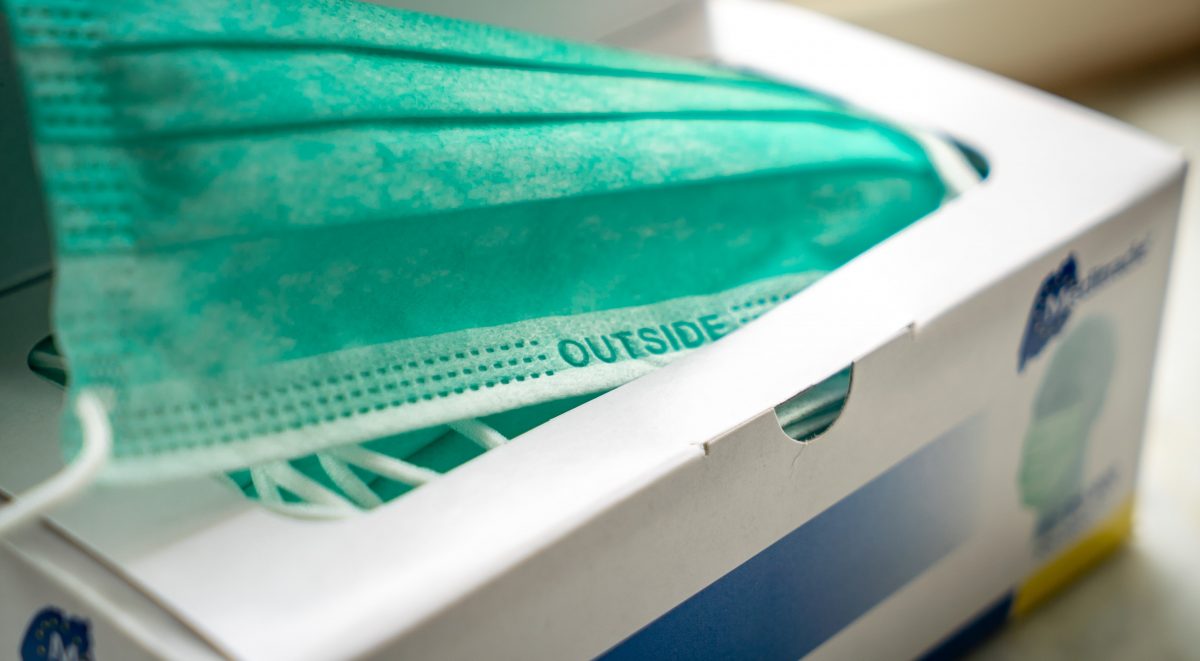
Fruit of an on-going collaboration between IYNF and Instituto de Educacion Secundaria “A Sangriña” in Spain, this article collects the thoughts and concerns about how COVID-19 affects and will affect our lives and the environment around us.
More than a year after the initial outbreak of COVID-19, a lot has changed around the world. Continued vaccine research, development, and implementation programs give us hope that we can go back to our old, “normal” lives soon.
Some reports and predictions suggest that with the current vaccination drives, the world might see some sense of normality by the end of summer 2021. Others are predicting that we might not see an end to the pandemic until 2024.
We all have our hopes up that everything will go back to how they used to be. However, there is no denying that the COVID-19 pandemic has changed our lives: the way we live, interact with others, and even the way we look at our environment.
Here, students from a public high school in Galicia, Spain share some research and their personal reflections about how our daily lives will or should change post-COVID-19. Also included are some suggestions on how we can minimize our environmental impacts during this pandemic time.
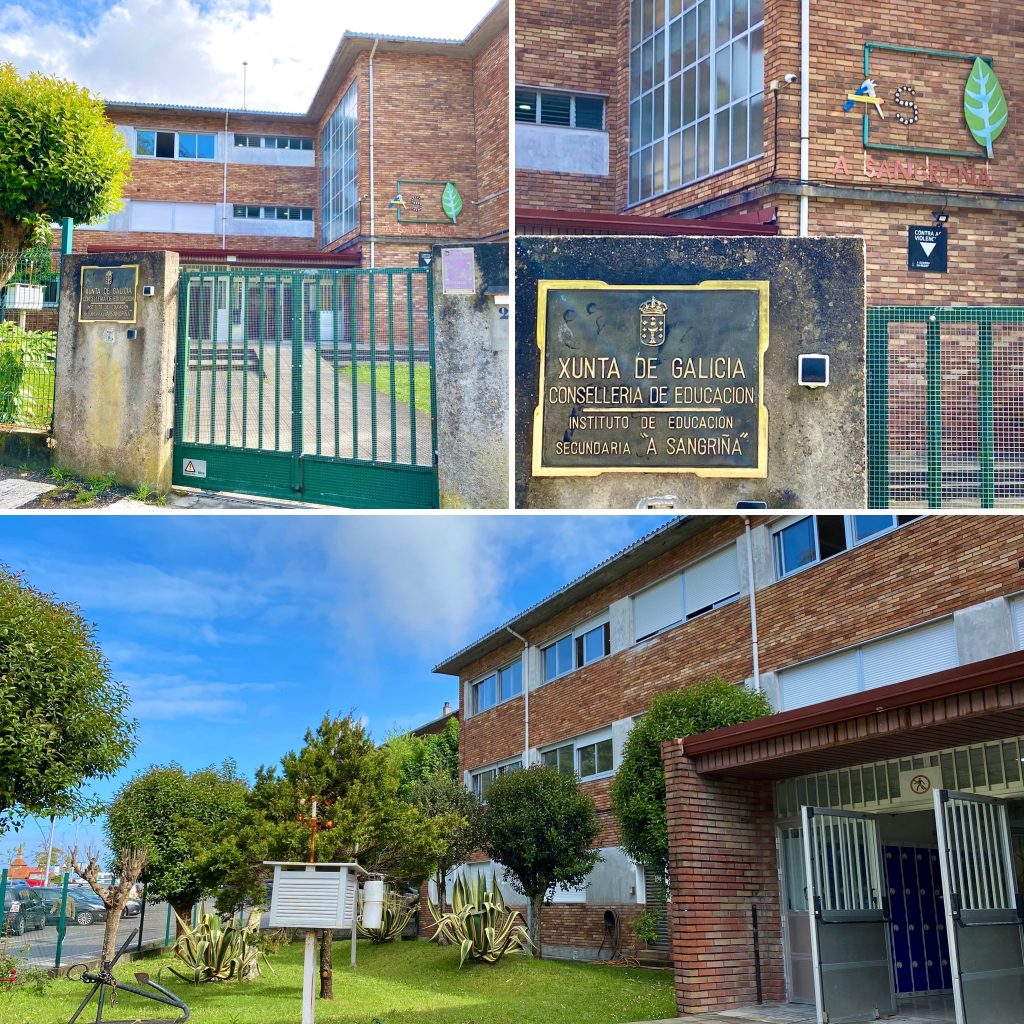
Notes from the authors:
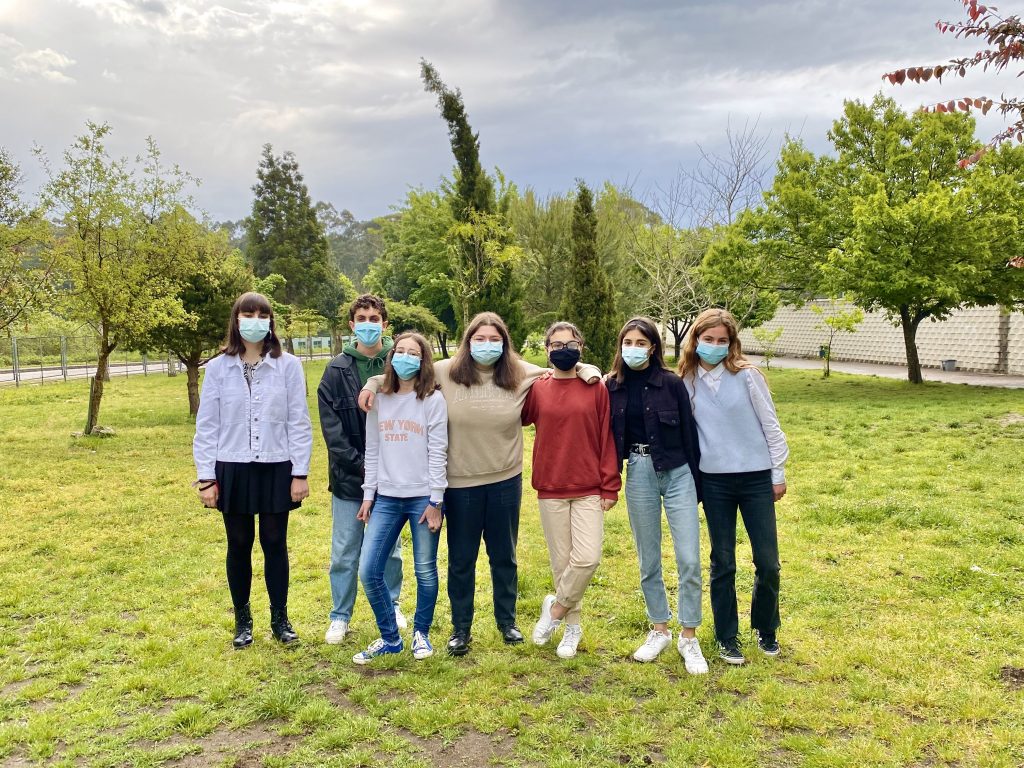
The authors are 2nd year high school students from IES “A Sangriña”, in the town of A Guarda, in Pontevedra Province, Galicia, Spain.
As mentioned, these are reflections and predictions are based on actual experiences and observations. Some examples will definitely be different depending on one’s location. It doesn’t mean, however, that it is entirely false or inaccurate.
A new source of pollution
Face masks, disposable gloves, and other personal protective equipment helped keep people safe by controlling the spread of the SARS-CoV-2 virus. But there is an emerging downside to this, which is mainly our fault as consumers/users.
Recent studies estimate that we use an astounding 129 billion face masks globally every month — or 3 million masks per minute. Most of them are disposable face masks made from plastic microfibers.
“We have been using masks every day, for more than one year now, but still, many people don’t know how to dispose of it properly, so these end up on the streets, the sea, or in nature. For instance, I live near the beach and everyday, I see masks by the side of the beach or getting blown by the wind and ending up on the road or in faraway places. We can replace the surgical masks with fabric ones that you can wash everyday. With the right filters and materials, it can provide the same protection as surgical masks.” -Arantxa Baz Martínez
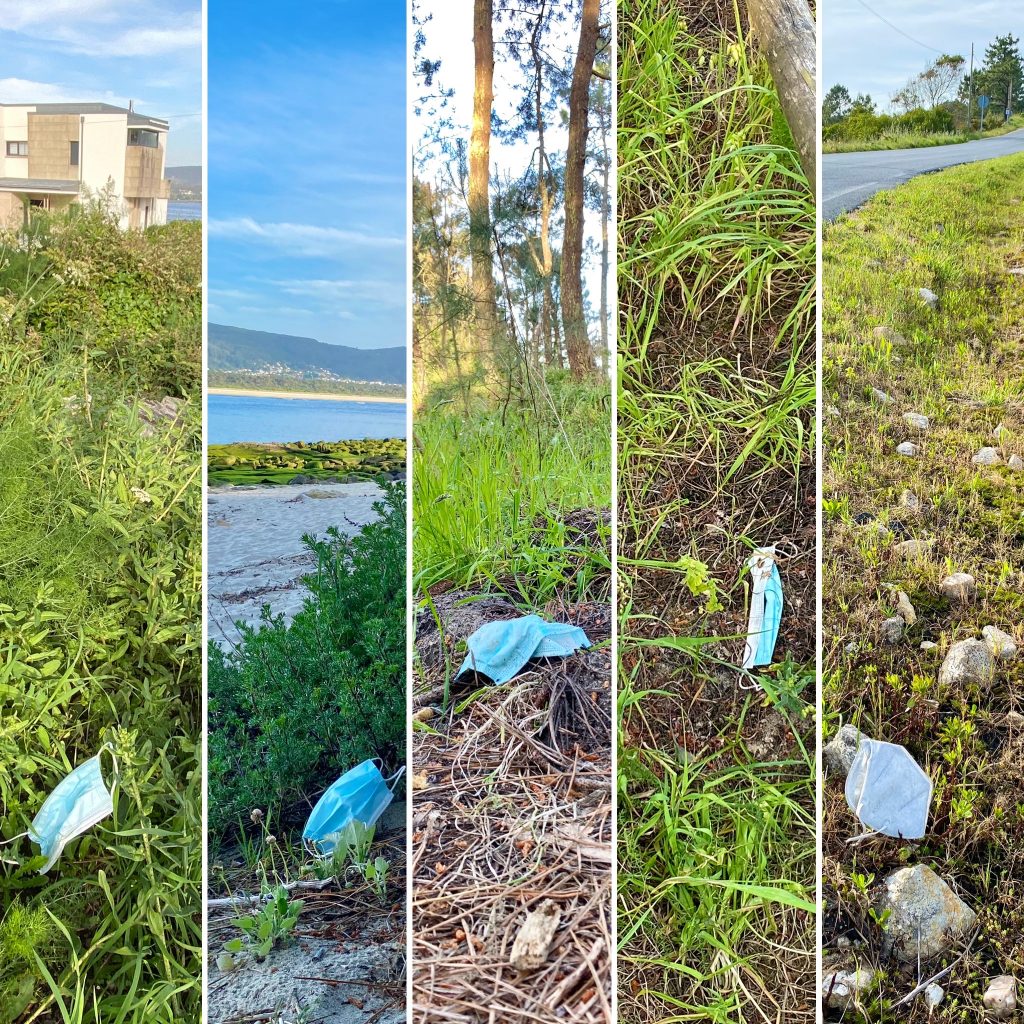
“Now that we have to wear masks, gloves, and other equipment to protect ourselves, we are also buying and consuming more supplies. A new aspect of the “new normal” is to see masks, gloves, and other personal protective equipment at the beach, on the streets, and in other random places. We can change this by using fabric masks that will last more than the disposable ones. Also, we can stop using gloves and start using more hand sanitizer and try to not touch our face while we haven’t washed our hands.” -Issi Trigo Alvarez
Grocery shopping and going to shops
“Many people thought that they could get COVID-19 through food (both consuming food and touching food containers/surfaces). Also, some thought that eating meat can be dangerous.
Although people touch many foods in the supermarket that they will not buy, the risk of contagion is very low. Also, food is usually cooked at high temperatures and that kills any microbes that might still be on the surfaces.
I don’t usually go to the supermarket, but when I do, I disinfect my hands and try not to touch things even though the risk is low. When we weren’t in this situation, I used to do the same since other people would touch various food items that others would buy and eat later on — and that´s a bit nasty.” -Mara Romeu Vicente
Doing more things online
Either because of mobility restrictions or out of precaution, a lot of our day-to-day activities have moved online. For the parents, many were allowed to work from home or from anywhere during this ordeal. For the kids, some school work and classes have also turned virtual.
“Something as common and routine for us like going to the office or school has completely changed for many of us. It created the necessity for being able to have a workspace in our own homes, with no social contact with other people aside from those who live with us.” -Lucas Viso Carneiro
In connection with item #1, there is also the rise of online shopping since the pandemic began.
“With the pandemic, more and more people have been buying online and have had more home shipments. In a way, this means less pollution; everything goes in the same truck and you do not have to travel to several places to buy.
Nowadays, I see that almost everyone is starting to buy online and I do it, too. From my point of view, home delivery is a great option when buying things as people who live in small towns don’t have to travel to other places. It is very convenient since you can shop for things while at the comfort of your couch. In a small way, it also helps minimize air pollution.” -Mara
“Our online shopping items come in so many wrappers and boxes. Many of us do not recycle them and these end up not being used again. This is going to grow thanks to the internet, and the pandemic is speeding it up and will continue to grow.” -Raquel Méndez Rosales
The exodus to the countryside
The lockdown and the following months with tough mobility restrictions showed many of us some of the weaknesses of city living, as well as the importance of wide, open, green spaces.
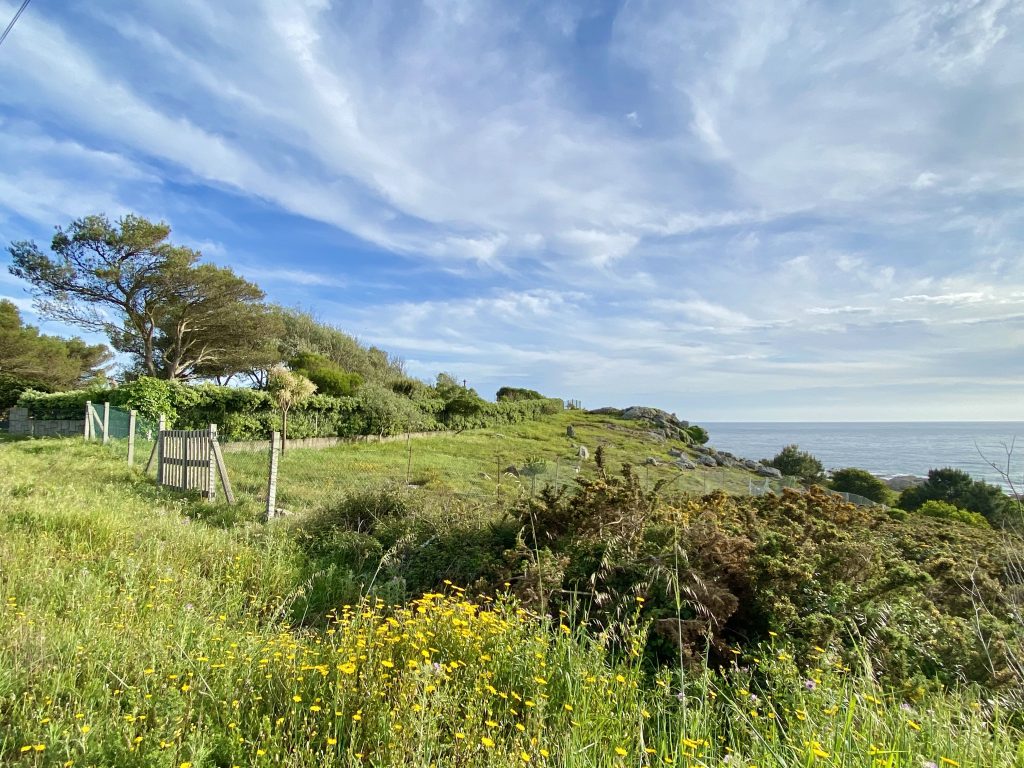
“Before and after the lockdown, a lot of people moved to the countryside and back to their towns, for a change in scenery and pace. Usually in towns, people stay more in nature. This affected the air quality in cities, and we saw and smelled it.
Also, in the towns, we can have an orchard to cultivate healthy food. This will help us save money, as we don’t need to buy fruits and vegetables that are expensive.” -Gema Peniza Rodríguez
After the pandemic, we can expect that people will start to embrace the countryside more, not only as a place for weekend getaways, but actually a great place to settle down or for raising a family.
The need for cleaner air
On a related note, weekend getaways to the countryside and to nature became more in demand during the pandemic because people wanted fresh air and to be outdoors. Aire libre, as they say in Spanish. The importance of clean air became more noticeable during the pandemic.
“Through the months we were confined, CO2 and NO2 emissions were reduced by 25 percent in many places. Madrid is a place where COVID continues to have a strong impact. A possible silver lining environmentally is when through the months when we were confined, the infamous smog blanket of Madrid disappeared and allowed them views of a clear blue sky that is not always visible. was impossible to see there. Along the M80 highway, the emissions pollution got reduced by 80 percent.” -Lucas
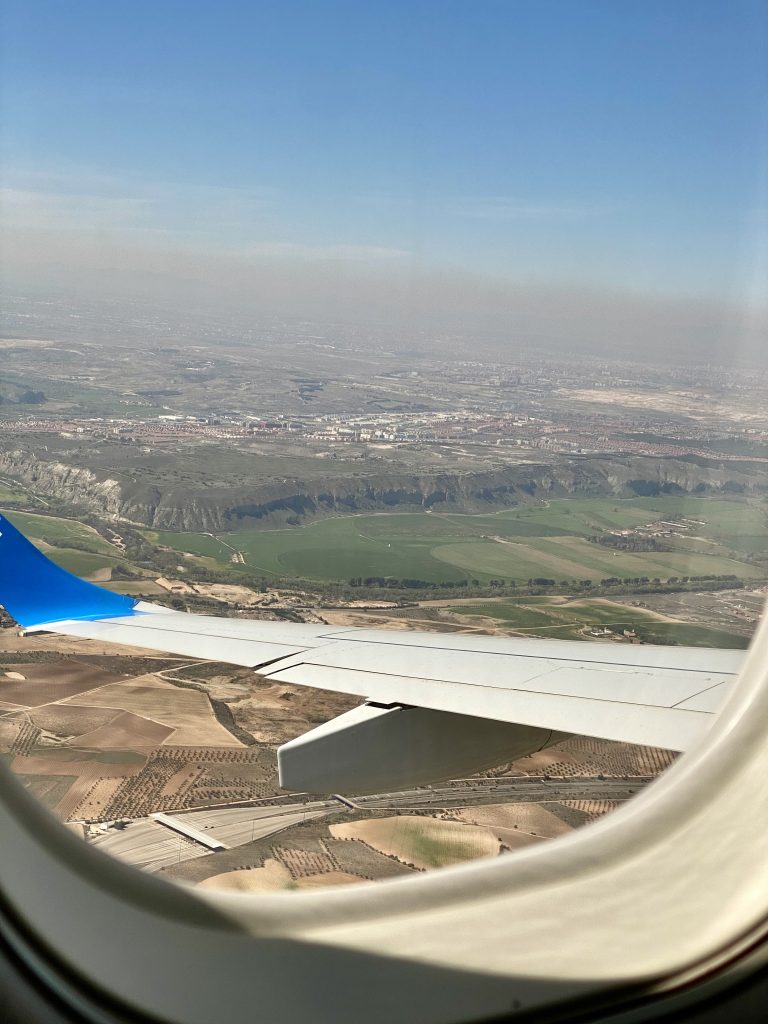
“When we were in lockdown, the air quality was better since everything stopped and was at a standstill., But now, with the new restrictions and mobility rules, people have been using their private cars more instead of going on public transport, so we end up polluting the air more. People have to go to work, so that’s hard to change.
Also, we now use a lot of disinfectants to sanitize our hands, furniture, and other surfaces we come in contact with. The massive use of disinfectants, such as the bleach- or hydrogen peroxide-based ones, can worsen indoor air quality since it releases harmful toxic compounds and we have to ventilate. In my case, during winter, we had to keep the windows open and it was too cold, we had to wear several layers of clothes, doubling on shirts and other inner wear. That (the open windows and cold indoor temperature) was horrible, but if we hadn’t done that, we would have had more cases of COVID-19 now.” -Mara
Allergies, other ailments, and future pandemics
Spring is in full bloom, and with it comes the millions of pollen floating in the air. The mask mandate for COVID, however, proved to be helpful for the past two spring seasons.
“The idea that we are going to wear masks for several more years than we actually thought can be pretty frustrating. But then again, there is a positive thing to it. People with allergies or those who often catch the seasonal flu easily are doing well this year. Usually, at this time of the year, I would be suffering from allergies, but this year, I did not notice the impact of the allergy season. Why? Because of the masks.” -Lucas
Also, as humans, we learn from our past and our mistakes. The challenges and crises we are experiencing now can help improve our future responses.
“I think we will be more ready to handle new illnesses. In the future, if there is another pandemic, we are going to be more prepared for it because we have more information on how to face that problem. If we get ill, it is going to be compulsory to wear a mask to avoid spreading the disease.” -Marta Lomba Pérez
Contactless payment options
“Cash payments will eventually disappear because people will be cautious of touching cash and coins, so the ways we pay will be more modern. This could mean the reduced use of cash, coins, and old credit cards, as we would pay with mobile phones or other, new payment channels. The change will be slow, but it will be steady; first in urban areas, and later in smaller towns.” -Gema
“We will minimize the use of cash to avoid contact with other people and with possibly unsanitized surfaces. The cards are more hygienic. New technologies allow us to pay with the mobile phone and this is fantastic because we minimize the chances of catching illnesses and it is a more convenient option for many people. The use of cash will decrease.” -Marta
Out with the old, in with the new
Traffic and transportation:
“Although we stopped using our vehicles for a while (during the lockdown), now we are and will be using them more, because a lot of people don’t want to risk their own health and their families’ by using public transport, since there is a higher risk that someone could get infected. We can reduce traffic pollution by using other vehicles that don’t contribute a lot to air pollution, like bicycles or skateboards, or if it’s a short distance you could just go walking.” -Issi
Ban on smoking in public:
As a measure to minimize airborne transmission, “most countries forbade smoking in public, so we saw fewer cigarette scraps at the beaches and outdoors. Smoking is bad for the health and the environment. People who quit smoking become better overall; in fact, some countries and groups are thinking about keeping this restriction in place for an extended period.” -Arantxa
Some final words:
“Nowadays, our lifestyles have changed a lot because of the pandemic. The lockdown was horrible for us but it had its silver linings in other aspects. We used to pollute a lot before the pandemic, but when we were in lockdown, we couldn’t (or at least, we didn’t consume and generate as much rubbish), and it was good for the environment.
From my point of view, some things might not change since we are back to our old ways and are polluting again, and the world will be the same as before the pandemic in that aspect. People have to raise awareness and understand that there is only one planet.”
— Mara
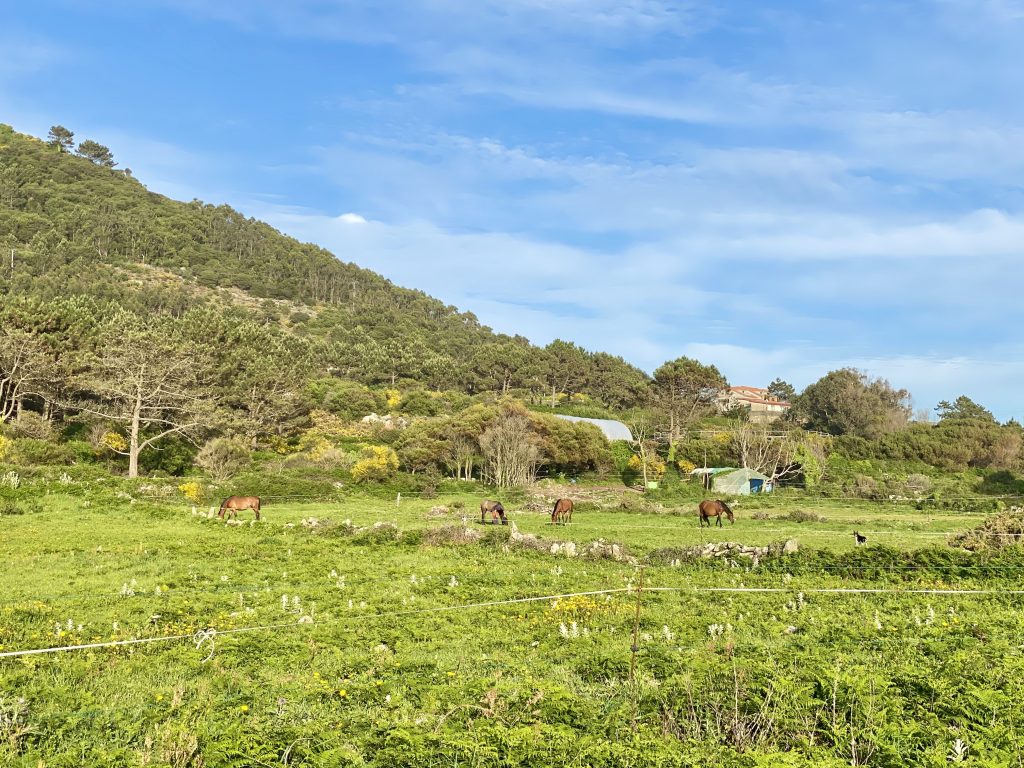
“So now this is our reality. We need to appreciate the good things it brought and to learn from the bad ones. Now is our time to protect the environment, because this pandemic has shown us that it is not that difficult to save our beautiful planet.” -Lucas
